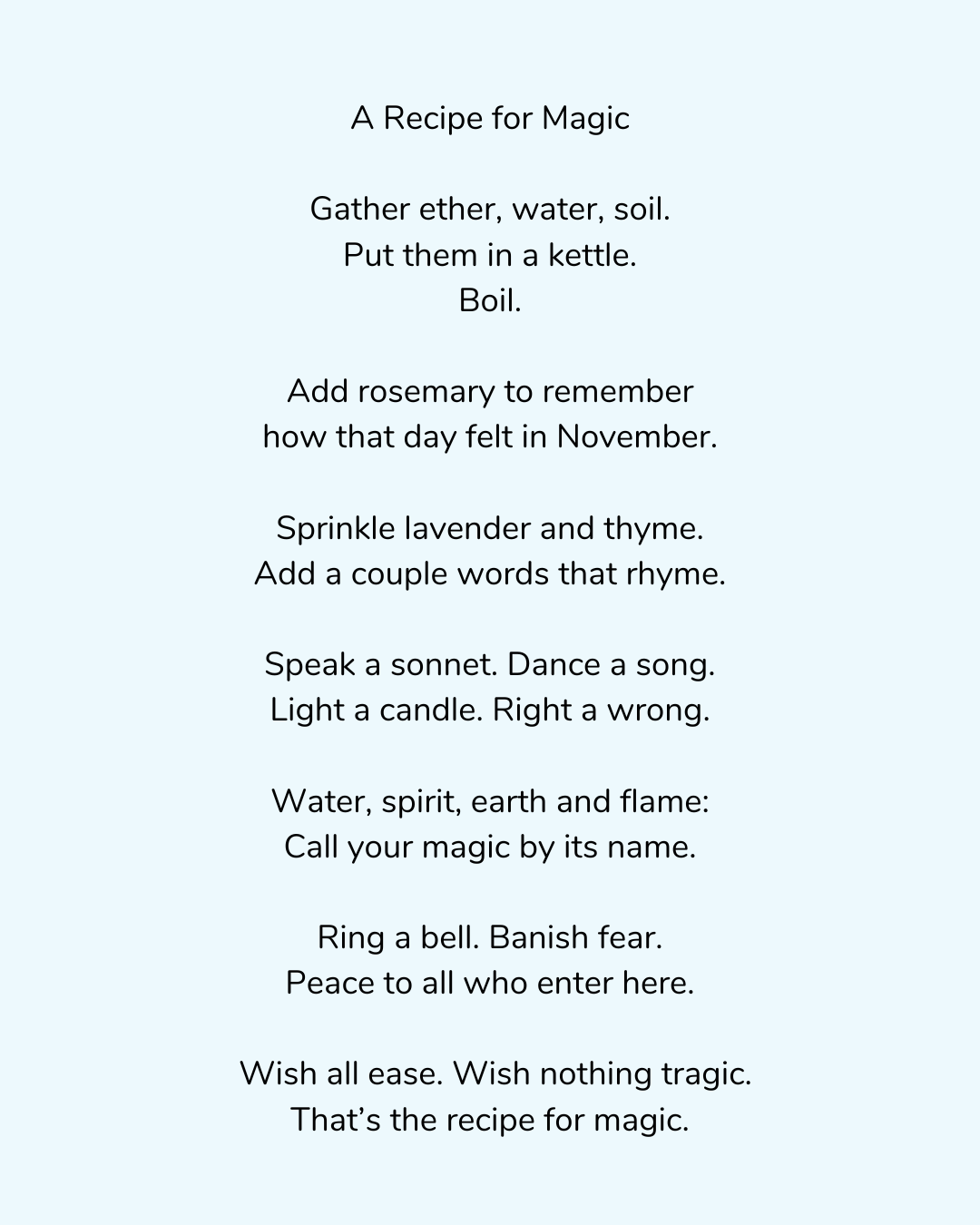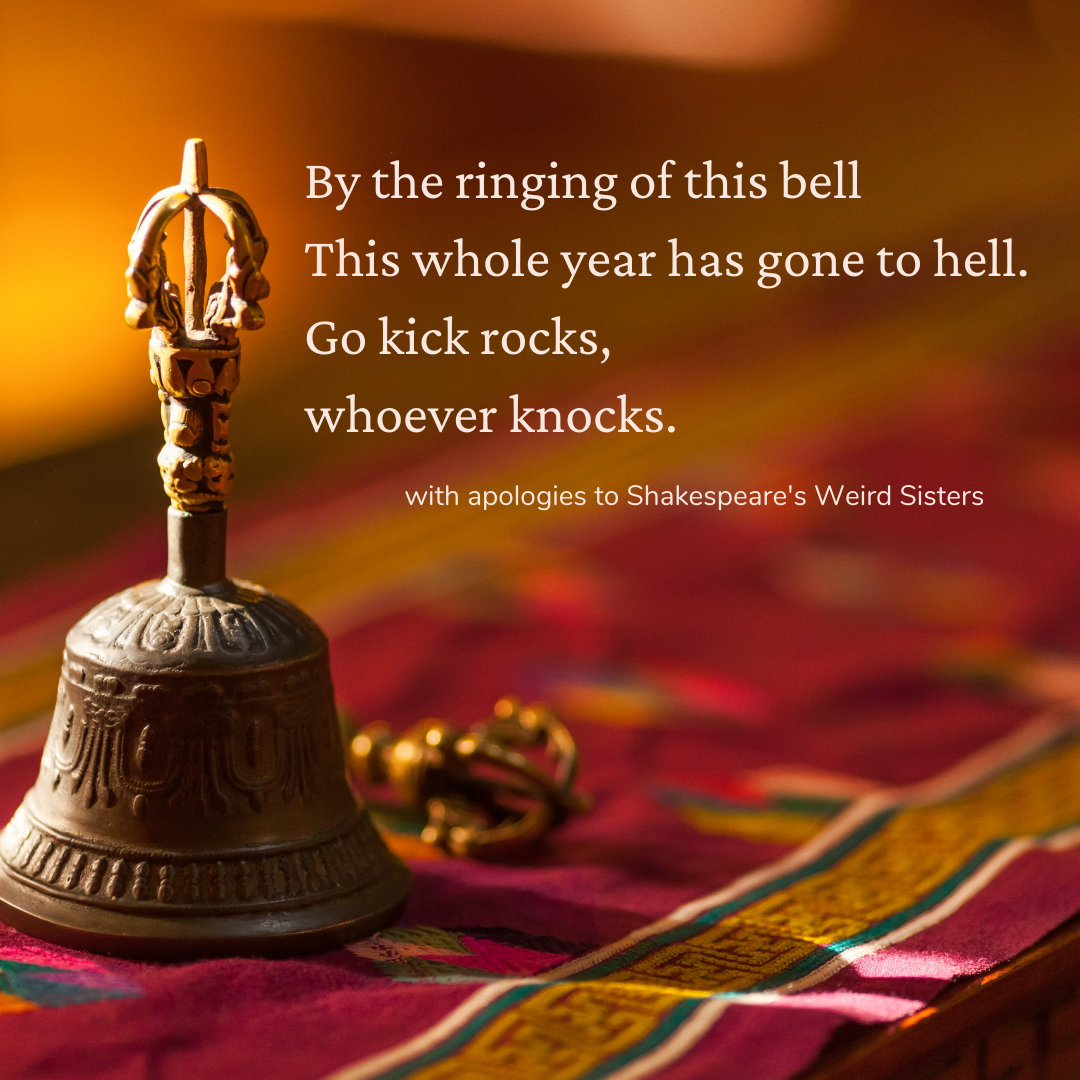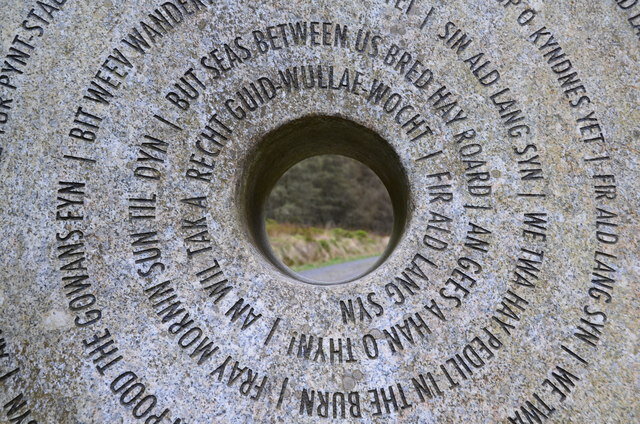This month’s challenge was a collaborative effort. We wrote an exquisite corpse, where each of us contributed an original line plus a “clunker” drawn from Linda Mitchell, who has at least three posts full of “clunkers”—lines that she discarded, that didn’t work for her.
The poem was written with Tanita starting with her two lines, which she sent to Sara. Sara then wrote her line and picked a clunker, then sent her two lines (only) to Liz. Each of us saw only the two lines by the person who preceded us, and at the very end, I sent my two lines to Tanita, who contributed another line.
Here’s the original, which we only saw after we each typed our lines into our group chat:
Tanita: They say the mind is garden-like, with thoughts as sprouting seeds
CLUNKER: but I'm left holding cuttings I'm not sure where to plant
Sara: Weedy-thick, the prickly buds of odd logic bloom:
CLUNKER: You don't cry anymore, but you sing all the words.
Liz: Each line in a different language as the light shifts,
CLUNKER: trees turned so orange the road looked blue.
Mary Lee: Words tangle, colors muddy in the palette.
CLUNKER: I am no longer winsome to the sun.
CLUNKER: a whole sun’s rise to share
Tricia: there goes the one that got away
CLUNKER: found a bit of sunflower
Laura: and plucked every petal (by the way, he loves me)
Kelly: and then I remembered
CLUNKER: that’s what you wrote about the green beans
Tanita: Stockpile, then, that snap and sass to sweeten your September.
Wildly, it made sense, and sort of hung together. Mary Lee read it aloud to us, and it sounded like perfection. (Such is the beauty of Mary Lee’s delivery.)
Once we had the draft poem compiled, we each decided to edit it in our own ways. And y’all, I can’t wait to see how everyone else altered this text.
Here’s my final version:
The Poetry Friday host this week is Linda Baie at Teacher Dance.


















